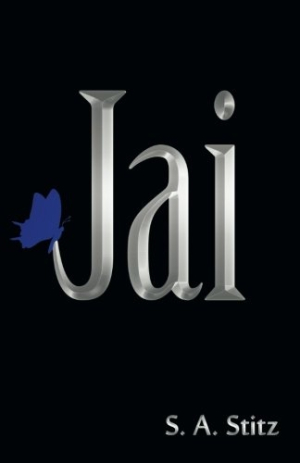Jai
Supernatural and science fiction elements blend with Eastern culture for an engaging and fresh read.
S. A. Stitz’s Jai follows the action-packaged adventures of a singular heroine as she discovers the extraordinary truth about her heritage and embarks upon a mission to save the world. Steeped in cruelty, violence, and arcane sexual practices, the novel delves into questions of morality and what it means to be human.
After escaping a life of poverty and abuse, Jai finds herself at an isolated temple in the Himalayan mountains. She masters the martial arts and tantric sexual practices, but tragedy tears her away from this peaceful interlude.
Left with no home, Jai reintegrates into civilization, but not before she encounters a supernatural being who reveals the truth about her nonhuman heritage and the source of her paranormal abilities. Due to her unique nature, she takes up the task of protecting the earth and begins assembling a group of remarkable people to aid her.
Jai recalls action-adventure novels from decades past, where Eastern Asia was steeped in inscrutable mystery and exotic mysticism. Many elements draw upon Buddhist and Tibetan influences, albeit as seen through a Western lens. Frequent scenes depicting arcane tantric sexual rituals border on tedious, though they contribute to that retro impression.
The novel’s shocking opening proves effective at grabbing attention, though some momentum is lost with clumsy explanatory flashbacks. A constantly shifting timeline is disorienting. Even though the story eventually assumes a more straightforward chronological order, it never completely recovers from its initial slowdown.
Jai’s frequent encounters with corrupt and greedy bodies of power offer a steady stream of entertainment, but these exchanges raise a few questions regarding the humanity and morality of the heroine’s mission. Do the ends justify the means? What tactics are acceptable in the name of protecting the world? At what point do saviors become indistinguishable from villains?
While some of Jai’s decisions can be explained by her nonhuman heritage, they do highlight the ways in which justice is cold. Jai’s superhuman qualities further open a discussion about a savior’s personal character—a question that is reflected in the allies that surround her, who include an incestuous brother-sister pair and a teacher who initiated a sexual relationship with an underage girl.
Even though the action-packed narrative lends itself to an engaging read, Jai suffers from a lack of emotional nuance. Because everything is explosive and bombastic, transitions are lost, leading to a dearth of much-needed respites. The characters react in ways that appear out of proportion, and Jai comes to seem superficial, despite the incorporation of elements traditionally associated with meditative religions.
Inventive action scenes and aspects of Asian cultures, mythologies, and religions make this a fresh addition to the genre, especially with its supernatural and science fiction elements. Jai raises questions about morality and the shapes our saviors take—a surprisingly timely discussion in these contentious times.
Reviewed by
Vernieda Vergara
Disclosure: This article is not an endorsement, but a review. The publisher of this book provided free copies of the book and paid a small fee to have their book reviewed by a professional reviewer. Foreword Reviews and Clarion Reviews make no guarantee that the publisher will receive a positive review. Foreword Magazine, Inc. is disclosing this in accordance with the Federal Trade Commission’s 16 CFR, Part 255.

